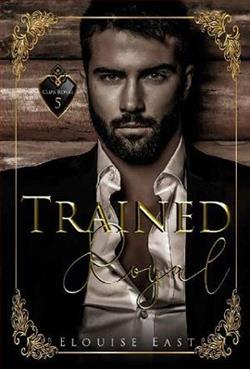Page 95 of Chasing Sunsets
This is the part of the conversation I was dreading the most because I don’t have it all figured out.
“Painting? You think you can make a living painting?” Mom gasps.
“I’ve done fine so far.”
She scoffs. “For goodness’ sake, Tabitha, you’re living in a tin can in a campground. You call that fine?”
“No. I think that is fucking amazing. I wake up every morning feeling happy. I spend my days painting, creating, and enjoying the company of good people, and I go to sleep every night to the sound of the ocean.”
“You sound like your grandmother,” Dad says with a hint of nostalgia.
“It was a mistake, letting you kids spend all those summers with her,” Mom states.
“Don’t say that. Those summers are my fondest memories.”
“Sweetheart,” Dad says, drawing my attention back to him, “what is it you want exactly?”
“Freedom,” I say. “Freedom to make my own choices in life and to know that you love me despite them not being what you would choose.”
“We love you,” Mom says.
“Do you?”
“Of course we do,” she says, her voice cracking with emotion.
“Even if I want to live in an RV on the coast, grow organic vegetables, crochet, and paint ocean landscapes instead of going back to the city, finishing law school, joining your practice, and buying a brick colonial down the street from you guys?”
She swallows hard, and her eyes shift from me to my father in distress. He gives her a small smile, and then he looks at me.
“Well, sweetheart, my mother preferred the simple things, and I loved her more than life. I don’t see how it could make me love you any less.”
“Really?”
He smiles. “Really. You’re my baby girl. You’ve always been a nomadic spirit. The exact opposite of your brothers and sister in every way. The circle in our family of square pegs, so to speak. It was never our intention to crush that spirit. If we pushed you, it was only because we wanted you to have the very best in life.”
“Then, let me be me and stop trying to make me fit some mold. You have three other children who happily followed in your footsteps. Isn’t that enough?” I plead.
Quenton clears his throat. “Tabitha, please. Think about what you’re saying. We had plans to fill one of those brick colonials with children of our own.”
I glance over at him. On paper, he seems like the perfect choice. He comes from one of Boston’s wealthiest families; he is handsome and athletic, captain of the rowing team, and graduated at the top of his class. Marrying him would be a dream come true for any socialite.
He reaches for my hand and adds, “We were happy.”
“No, you were happy,” I say quietly. “I was suffocating.”
He flinches, and guilt tugs at me again, but I don’t take it back. I can’t.
“What if,” Mom tries again, her voice laced with desperation now, “this is a mistake?”
“Then, it’s my mistake to make,” I whisper.
Her mouth falls open. “Tabitha—”
“No,” I cut her off. “I love you, but I am not going back. Not to Boston, not to law school, and not to Quenton.”
Quenton stiffens beside me.
I turn to look at him. “I’m really sorry,” I say as I take the engagement ring off my finger and place it on the table in front of him. “I truly am. But you’ll have women lining up around the corner, eager for the chance to become a Belicourt. You deserve someone who wants that. It’s just not me.”















